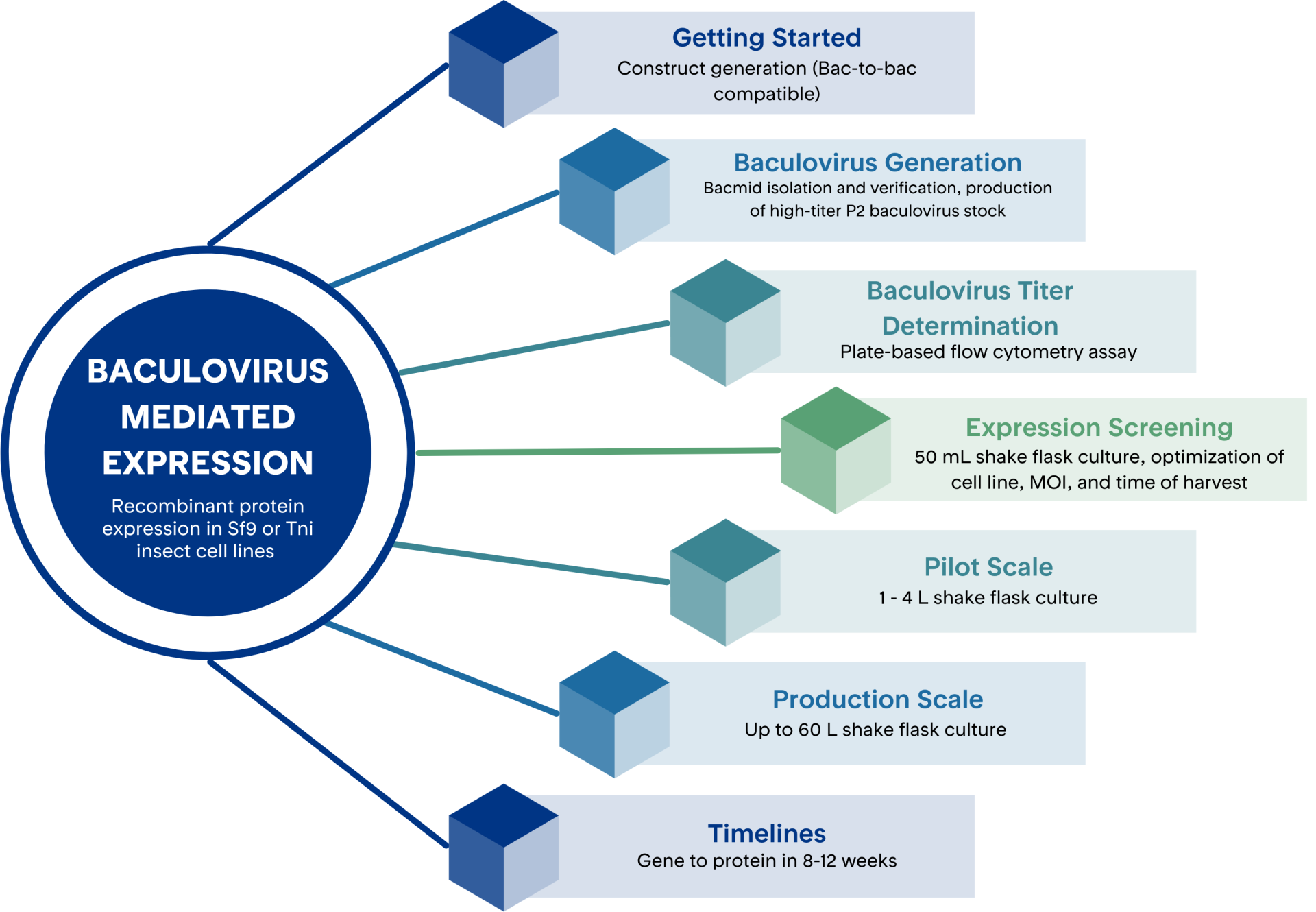Insect Cell Expression


Recombinant protein production using baculovirus mediated expression in licensed Sf9 (Spodoptera frugiperda) or Tni (Trichoplusia ni) cells. Both cell lines produce proteins that contain a majority of the post-translational modifications found in mammalian cells.
Proteos specializes in producing high-quality recombinant proteins through baculovirus mediated expression utilizing fully licensed Sf9 (Spodoptera frugiperda) and Tni (Trichoplusia ni) insect cell lines. The baculovirus expression vector system (BEVS) makes use of site-specific transposition to produce recombinant virus encoding the protein of interest. Insect cells are suitable to produce intracellular or secreted recombinant proteins, and the resulting proteins contain many of the post-translational modifications found in mammalian cells.
We use a robust plate-based flow cytometry assay to determine baculovirus titers prior to infecting insect cells. This ensures a consistent multiplicity of infection (MOI) and supports reliable, reproducible protein production. All expression cultures are mycoplasma-free, high viability, low passage, and are carefully monitored using a Beckman Coulter Vi-CELL BLU for culture density, viability, and average cell diameter. This rigorous quality control enables precise monitoring and is essential to maintaining the consistency and reproducibility of our protein production processes.
We deliver consistent, reproducible results with fast turnaround using optimized, validated protocols for serum-free shake flask cultures at production scales from 50 mL to 60 L. Protein expression can typically be completed in 4-6 weeks as part of a streamlined 8–12 week gene-to-protein workflow.
Sometimes yes, but it depends on the protein. Native mammalian signal peptides often function sub optimally in insect cells.
We typically recommend replacing native signals with ones validated in insect expression systems, such as the GP67 or honeybee melittin signal peptides, which show high efficiency in directing secretion in Sf9 and Tni cells. Signal sequences are only required for proteins that are secreted or inserted into membranes. Cytosolic proteins typically do not have signal sequences.
Optimizing expression conditions is helpful when:
Multiple expression conditions (cell lines, MOI, time points) can be tested in insect cells using a single high-titer baculovirus stock.